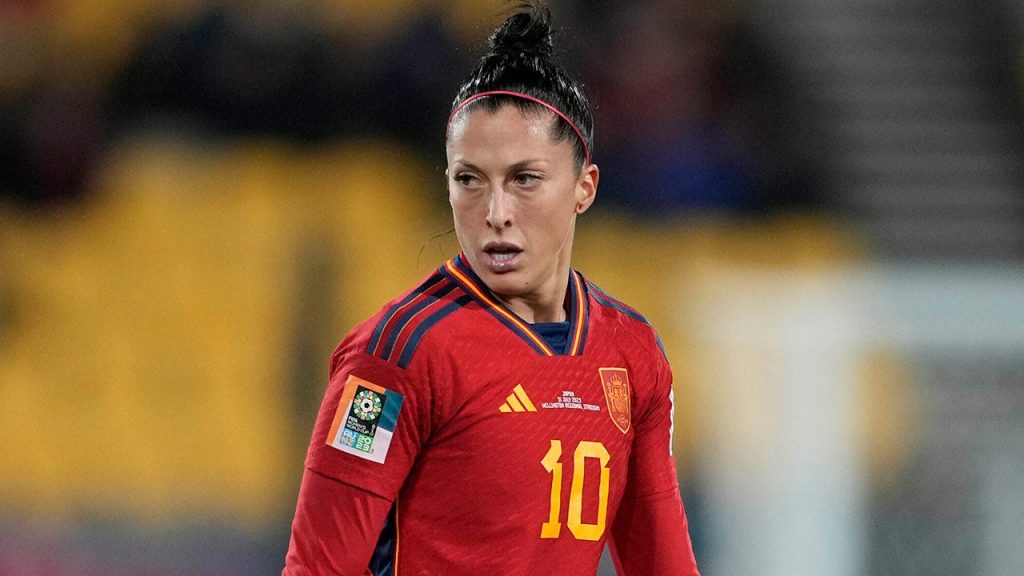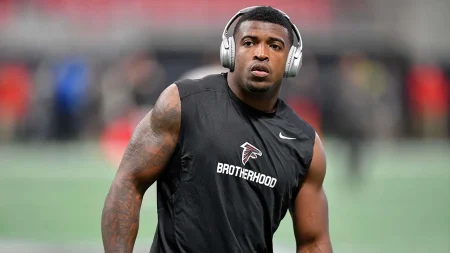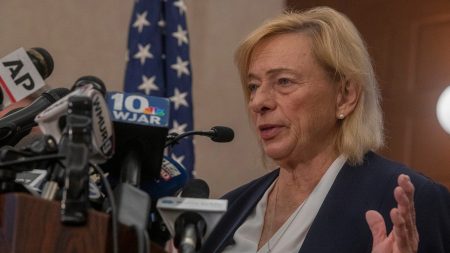The courtroom drama surrounding the controversial kiss between Spanish soccer president Luis Rubiales and World Cup champion Jenni Hermoso unfolded in Madrid’s High Court, with Hermoso delivering compelling testimony that directly contradicted Rubiales’ version of events. The incident, which transpired during the celebratory aftermath of Spain’s 2023 World Cup victory, ignited global outrage and sparked a heated debate about consent, power dynamics, and the treatment of women in sports. Hermoso, while recounting the incident, vehemently denied Rubiales’ claim that the kiss was consensual, emphasizing the profound emotional distress and professional repercussions she endured as a result.
Hermoso’s testimony painted a starkly different picture of the celebratory moment. She recounted feeling “disrespected” by Rubiales’ actions, describing the kiss as a stain on one of the happiest days of her life. She explicitly stated that she did not hear or understand any request from Rubiales for a kiss, directly refuting his assertion that she had consented. Instead, Hermoso described Rubiales grabbing her by the ears and kissing her on the mouth. This forceful action, captured on video and broadcast worldwide, became a symbol of the unwanted advances women often face, particularly in environments where power imbalances exist.
The legal proceedings against Rubiales carry significant implications, both for the individuals involved and for the broader sporting world. He faces charges of sexual assault and coercion, not only for the kiss itself but also for the alleged pressure he and his associates exerted on Hermoso to publicly support his version of events. The prosecution, backed by Hermoso and the Spanish players’ association, is seeking a two-and-a-half-year prison sentence, a substantial financial penalty, and a lifetime ban from holding any sports official positions. These demands reflect the gravity of the accusations and the desire to hold Rubiales accountable for his actions.
The trial also involves three other individuals connected to the Spanish soccer federation, accused of complicity in attempting to coerce Hermoso into defending Rubiales publicly. Former coach Jorge Vilda, former sports director Albert Luque, and former marketing head Rubén Rivera are all implicated in the alleged pressure campaign, further highlighting the systemic nature of the issue. Their involvement suggests a culture of protecting those in power, even at the expense of the well-being and autonomy of athletes. The outcome of their cases will send a message about the accountability of individuals within sporting organizations who enable such behavior.
Beyond the immediate legal ramifications, this case has ignited broader discussions about consent and respect, particularly within the context of sports. Rubiales’ initial defense, claiming the kiss was consensual and part of a celebratory gesture, was met with widespread skepticism and condemnation. His subsequent portrayal of himself as a victim of a “witch hunt” by “false feminists” further fueled the controversy, revealing deeply ingrained attitudes about gender and power. The incident brought to the forefront the challenges women face in navigating male-dominated environments, where their voices and experiences are often dismissed or minimized.
The repercussions of the incident have extended beyond the courtroom, impacting Hermoso’s personal and professional life. She testified to the difficulty of escaping the constant spotlight and the emotional toll the experience has taken. Her ability to “live freely” has been significantly curtailed, demonstrating the far-reaching consequences of Rubiales’ actions. Despite the ordeal, Hermoso’s performance on the field remained impressive, with three goals and two assists during the World Cup, showcasing her resilience and dedication to the sport. The case serves as a stark reminder of the need for greater awareness, education, and accountability regarding issues of consent and respect within the sporting world and beyond.










